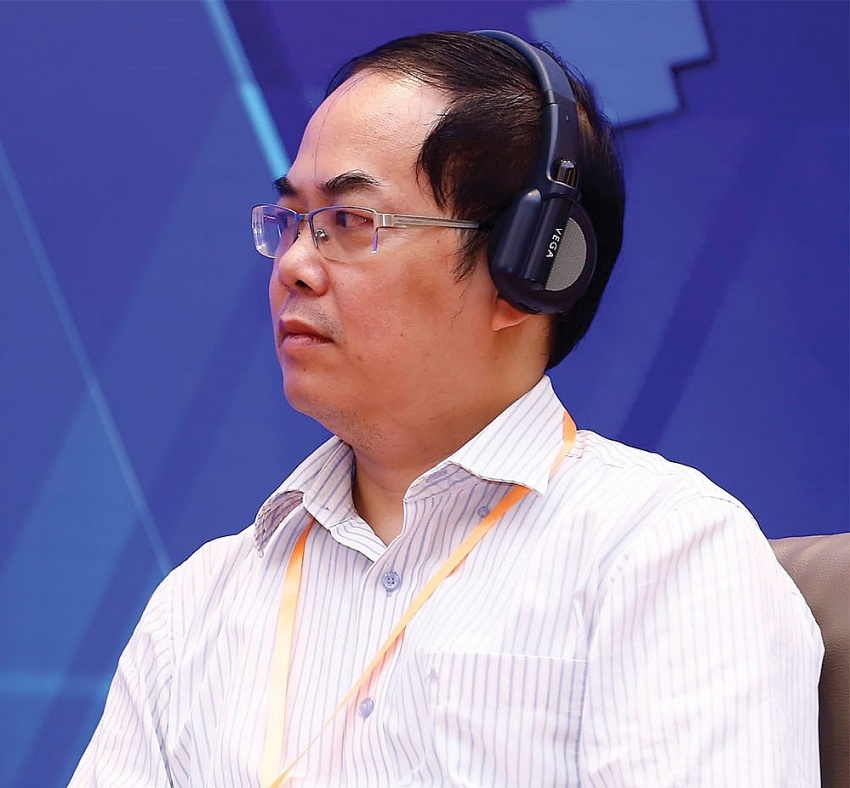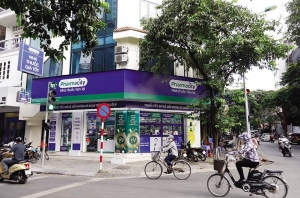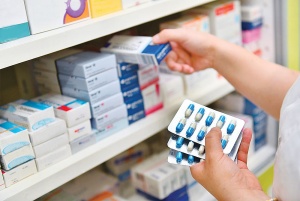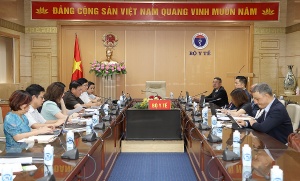Stricter punishments could curb drug violations
In that time, people’s increasing need for epidemic prevention, medical treatment, and healthcare risks increased production and trade of counterfeit and poor quality drugs, not only in Vietnam but worldwide. The World Health Organization and Interpol have given warnings on the situation.
 |
| Ta Manh Hung, Deputy Director, Drug Administration of Vietnam |
To promptly prevent the situation, the Drug Administration of Vietnam (DAV) under the Ministry of Health (MoH) has been advising and organising management solutions to strengthen quality management and prevention of counterfeit and poor quality drugs, as well as various drugs of unknown origin.
Firstly, we review and complete the system of legal documents, including the Law on Pharmacy, decrees, and related circulars, while enhancing the effectiveness of drug administration and quality management.
We promote pre-inspection, post-inspection, and fully evaluate the records of foreign-invested drug factories when registering to circulate drugs in Vietnam. We also inspect all imported drug batches that come from manufacturing facilities.
Next, we apply IT to manage and interconnect retail systems as well as deploy connections to wholesale systems nationwide to ensure traceability, origin, quality, and purchase/sale price release of drugs at supply facilities.
Additionally, we are strengthening information channels at production facilities, medical centres, and among the people, asking them to only trade and distribute within the limit of drugs licensed for circulation by the MoH.
Trading in counterfeit drugs, drugs of unknown origin, and smuggled drugs is strictly prohibited. Consumers should only buy drugs at legal drug retailers; not buy and sell drugs of unknown origin; and promptly report suspected signs of production and trading of counterfeit drugs and drugs of unknown origin to health authorities.
Other aspects involve strengthening coordination of the Central Steering Committee 389 and Market Management Department under the Ministry of Industry and Trade; strictly managing drug quality; and regularly sending documents to people’s committees and departments of health of provinces and cities and related units, recommending they strengthen inspection and coordination to prevent counterfeit drugs.
When receiving information about fake drugs from the testing system, businesses, and agencies, the DAV promptly coordinates work with units to trace the origin of fake drugs and drugs of unknown origin, and crack down on associated crimes.
In addition, the DAV has also promptly issued a nationwide dispatch announcing specific information about fake drugs and posted them on our website so that people know the information, and do not buy, sell, or use fake drugs.
Implementing the aforementioned solutions, the MoH, the DAV, the municipal and provincial departments of health, and related units have increased inspection and sampling of drugs for testing in recent years. In general, the ratio of fake and poor quality drugs has lowered. Close cooperation and coordination between the DAV with other relevant ministries and agencies in deploying a number of synchronous measures and solutions has helped detect a number of violations.
The rate of poor quality drugs was 1.34 per cent in 2019; 0.8 per cent in 2020, 0.86 per cent in 2021, and 0.56 per cent in 2022 out of a total of nearly 40,000 drug samples tested for quality annually. Also, the rate of counterfeit drugs fell from over 7 per cent in 1990 to less than 0.1 per cent in recent years.
Nonetheless, many domestic and foreign-invested companies are still found violating drug quality rules. The administration is proposing that the MoH award a certificate of merit to promptly encourage organisations and individuals to make achievements in preventing counterfeit drugs.
Going forward, the DAV and the MoH will continue to receive the attention and coordination of ministries, industries, and related agencies and units to improve the effectiveness of inspection, supervision, and management of drug quality in general as well as preventing counterfeit and poor-quality drugs, and those of unknown origin.
 | Drugstore chains continue growth momentum Leading drugstore chains are gaining customers and securing impressive growth. |
 | Drugmakers build on early 2023 gains While making profits in 2022 from market recovery, Vietnamese drug giants are restructuring to strengthen sales and new products to gain market share, both at home and abroad. |
 | Pfizer seeks to boost presence in Vietnam A business mission led by Anil Argilla, president of Emerging Markets Asia at Pfizer, worked with Deputy Minister of Health Do Xuan Tuyen and the heads of other departments on May 25 to discuss business opportunities in Vietnam. |
What the stars mean:
★ Poor ★ ★ Promising ★★★ Good ★★★★ Very good ★★★★★ Exceptional
Themes: Healthcare Platform
- PM outlines new tasks for healthcare sector
- Opella and Long Chau join forces to enhance digestive and bone health
- Hanoi intensifies airport monitoring amid Nipah disease risks
- Cosmetics rules set for overhaul under draft decree
- Policy obstacles being addressed in drug licensing and renewal
Related Contents
Latest News
More News
- PM outlines new tasks for healthcare sector (February 25, 2026 | 16:00)
- Ho Chi Minh City launches plan for innovation and digital transformation (February 25, 2026 | 09:00)
- Vietnam sets ambitious dairy growth targets (February 24, 2026 | 18:00)
- Masan Consumer names new deputy CEO to drive foods and beverages growth (February 23, 2026 | 20:52)
- Myriad risks ahead, but ones Vietnam can confront (February 20, 2026 | 15:02)
- Vietnam making the leap into AI and semiconductors (February 20, 2026 | 09:37)
- Funding must be activated for semiconductor success (February 20, 2026 | 09:20)
- Resilience as new benchmark for smarter infrastructure (February 19, 2026 | 20:35)
- A golden time to shine within ASEAN (February 19, 2026 | 20:22)
- Vietnam’s pivotal year for advancing sustainability (February 19, 2026 | 08:44)

 Tag:
Tag:




















 Mobile Version
Mobile Version